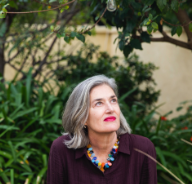In Garret Hardin’s 1968 essay, “The Tragedy of the Commons,” he asserts that shared resources needed to sustain the life and livelihoods of a group have always been undermined—even to the point of elimination—by individuals acting in their own self-interest. Hardin’s premise is drawn from an 1833 pamphlet on medieval land usage which surmises that “the commons” provide plenty of grazable land for each farmer’s cows, unless—or inevitably, until—each farmer decides to add a few more, and a few more still, each choosing his own gain over the clear loss to the whole, and ultimately destroying the life-giving land and grass that once sustained them all. His assertions have been correlated to a wide range of theories—economic, ecological, social, evolutionary—but rarely, if ever, to sin.
The wisdom that sin hurts the life of the whole community was once as obvious to pagans and philosophers as it was to the children of God. In the highly multicultural and pluralistic Mediterranean world of the 1st century, people were united by a common understanding that “all things come from God/gods.” This included rain, food, love, family, and ultimately, life. “Sinners were [considered] deviants who jeopardized” everyone’s shot at, not only a good life, but any life at all. The wisdom of Greek philosophy seemed to lead to the same conclusion. In Plato’s Gorgias, Socrates makes the case that so great is the torture of unpunished sin (punishment being the corrective influence of the group), that a wise man—knowing he has acted unjustly or has done harm to another—will “run to the judge, as he would to the physician, in order that the disease of injustice may not be rendered chronic.” For Ancient Jews, “sin was largely communal; the Jewish community believed that united they would stand and divided they would fall.”
That had once been the promise and commitment of America. Today, we live as if we’re “free to do what we want, any old time,” regardless of our impact on “the commons.” Even Christians have lost their way, opting now to think of sin “as something more personal: the idea [isn’t] so much to save your community as to save yourself.” This radical individualism is now undermining exponentially the foundation of the freedom that made it possible.
The American project . . . consists of the continuing effort, begun with the founding, to demonstrate that human beings can be left free as individuals and families to live their lives as they see fit, coming together voluntarily to solve their joint problems. The polity based on that idea led to a civic culture that was seen as exceptional by all the world. That culture was so widely shared among Americans that it amounted to a civil religion. . . . That culture is unraveling. (Charles Murray, Coming Apart)
Such is the price of our relentless inward turn. “When individualism is taken to an extreme, individuals become its ironic casualties.” (David G. Myers, The American Paradox). And so it is that we have allowed the rich to get richer at the expense of the “ninety-nine” (Matthew 18:12) left behind—the sin of greed killing dreams, dignity, and hope. We have watched as creatures, both animal and human, have been sickened by toxic waste—death through the sin of hubris, greed, or neglect. We have shrugged as a media culture killed off our children’s innocence and choked our common lives with sex, scandal, and violence. Until, in the final weeks of 2012, the murder of 26 young children and their teachers, and the mother of a troubled boy, made it clear that something is terribly wrong in America and getting worse: of the twelve deadliest shootings in U.S. history, half have been in the past five years. By the time this thesis is presented, we will know more about what sort of corrective, first-use-of-the-law actions the United States might take as a result of the massacre at Sandy Hook Elementary and others. The response may be helpful, but it will not be curative. Because underneath all that has gone so terribly wrong is still that single, most objectionable word: sin. While “unfathomable” events may prompt us to consider how the actions of “they” and “them” can hurt us all, we are not quite so willing to look at how the actions of “I” and “me” contribute to this collective evil.
From RECLAIMING THE WISDOM OF HOMO INCURVATUS IN SE: “MAN TURNED IN ON HIMSELF” AS AN ENTRY POINT FOR THE DISCUSSION OF SIN IN 21ST-CENTURY AMERICA by Heather Choate Davis
